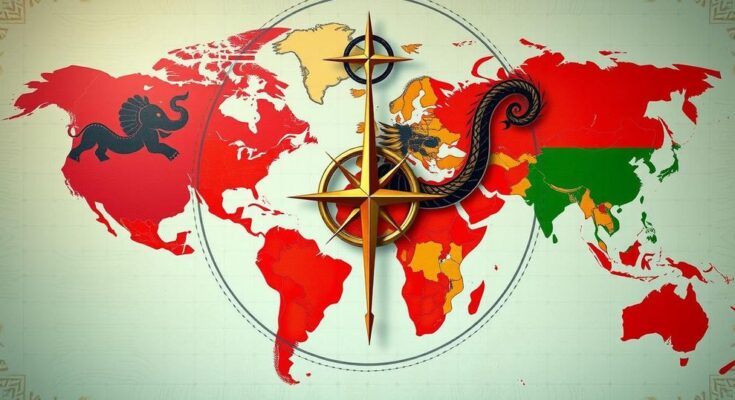General Upendra Dwivedi, Army Chief of India, discussed how China’s rise complicates India’s leadership aspirations for the Global South. He highlighted India’s strengths and challenges within a shifting global landscape, emphasizing the need for technological prowess, international collaboration, and proactive engagement in global governance.
General Upendra Dwivedi, the Army Chief of India, expressed concerns regarding the rise of China, which he stated complicates India’s aspiration to lead the Global South. Speaking at the General Bipin Rawat Memorial Lecture in Delhi, he emphasized that China’s dominance introduces competition that hampers India’s ability to influence key international decisions. Despite India’s strengths—its large population, democratic values, and strategic location—it still faces barriers that diminish its global standing.
General Dwivedi remarked on the necessity for India to recognize Africa’s potential as a future power center amid a changing global order characterized by democratic shifts and competition for resources. He acknowledged that India’s geostrategic advantages should facilitate its role as a pivotal nation, yet it has often been sidelined in significant global matters, even facing challenges within BRICS and from the US.
He underlined the growing importance of emerging technologies in national security, suggesting that technological capabilities now serve as crucial deterrents and data has become essential for trade and security. According to him, a robust military-civil fusion, along with a self-reliant defense sector and informed decision-making, all contribute to enhancing national security capabilities.
Furthermore, General Dwivedi called on India to engage with anti-colonial allies who support a multi-polar world, asserting that collaboration among nations can mitigate conflict. He advocated for India’s active participation in organizations such as the Shanghai Cooperation Organisation, BRICS, and others to solidify its leadership role.
He also highlighted several strategies for India to align itself with the Global South, including reforming the UN Security Council to integrate voices from emerging nations and acting as a mediator in international conflicts. He urged the nation to leverage the strengths of the Indian diaspora and contribute resources to aid socioeconomic development in less fortunate regions.
General Upendra Dwivedi’s remarks underscore the complexities India faces in its ambitions to become a leader in the Global South. The rise of China, technological advancements, and the need for international collaboration are pivotal factors influencing India’s geopolitical strategies. His insights suggest that India must remain proactive in global affairs, advocate for systematic reforms in international institutions, and strengthen alliances to enhance its standing on the world stage.
Original Source: m.economictimes.com




